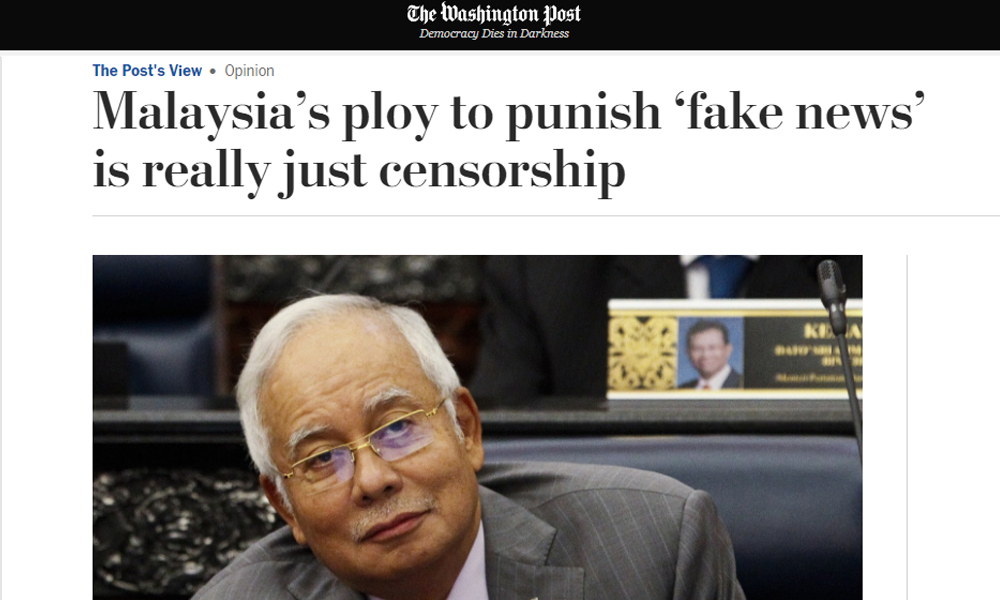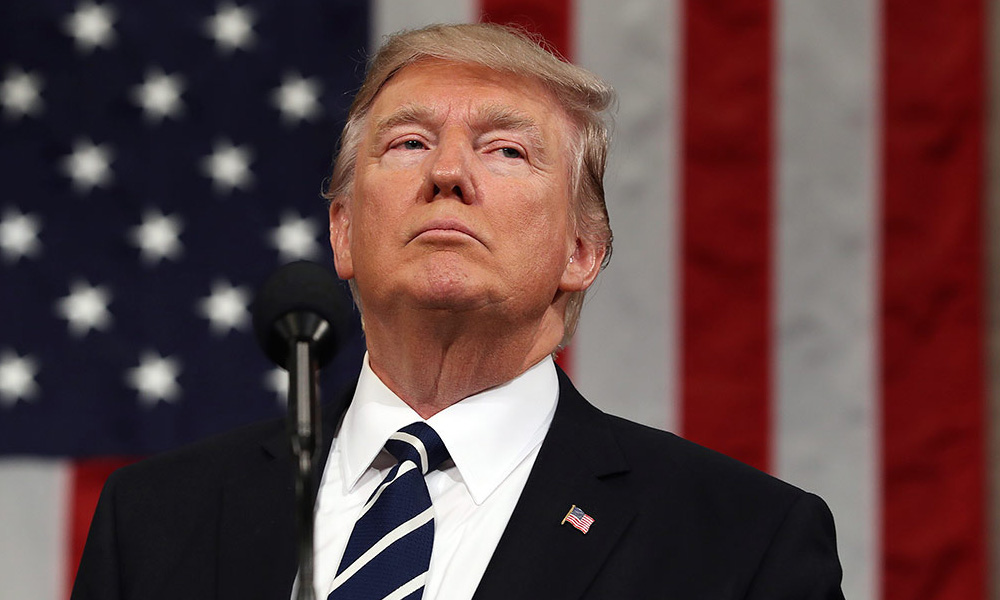
US daily The Washington Post believes that Malaysia's proposed anti-fake news law is nothing but an excuse for censorship.
In an editorial published on March 29, the daily said Prime Minister Najib Abdul Razak is no stranger to muzzling free expression, citing cases of bloggers and journalists being prosecuted for satirising and criticising him.
"The proposed law is a warning of the danger when governments decide what is true and what is not."
The daily also noted how Najib is currently embroiled in the 1MDB scandal.
While Najib has repeatedly denied any wrongdoing, The Washington Post believes that the anti-fake news law is set to chill media discussion of the scandal.
"We don’t take lightly the problem of truth in today’s information whirlwind.
"But an open society must guarantee the right to express a wide range of views, including criticism of its leaders, with very few limitations, accompanied by due process and rule of law.
"The Malaysian proposal looks more like a tool of arbitrary government control and intimidation."
The daily also noted how Singapore was holding hearings of a similar nature, while China had long ago perfected the art.
"It is called censorship."

Citing US President Donald Trump (photo) who had "championed" the "fake news" moniker for news reports he dislikes, as well as to undermine the legitimacy of the media by creating confusion over whether news is true or false, the daily admitted that the "army of people on social media" likewise muddy the waters by spreading malicious reports.
"In this environment, a free society has to be dedicated to unfettered speech, allowing it to flourish and regulating it extremely carefully.
"Yes, publishers, platforms and people must be vigilant for garbage and pollution in the news stream.
"But imposing governmental controls will only yield one thing: real fake news," said the daily.
Under the Anti-Fake News Bill, those found guilty of spreading fake news can be jailed up to 10 years, fined up to RM500,000, or both.
The same hefty penalties also apply to those who provide financial assistance or abet the production of fake news.
The bill also prescribes extraterritorial application to both foreigners and citizens, as long as the content involves Malaysia. -Mkini
No comments:
Post a Comment
Note: Only a member of this blog may post a comment.